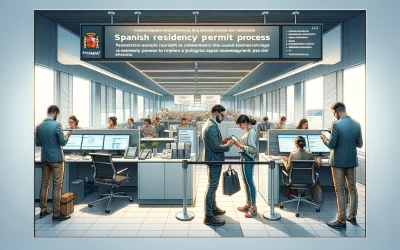We have many clients asking important questions LIKE “How much tax do you pay if you sell a house in Spain?” If you are looking into selling your property in Spain, then you need to pay land value tax.
In this article, you will read about the information you need to know about the plusvalía property tax in Spain. We will talk about exactly what the tax is about and how it originated. As well as how and when you need to pay it, how much it will cost you and, finally, how to avoid paying for it.
Contents
What is the Plusvalia Property Tax in Spain?
The land value tax or plusvalía tax in Spain is applied to the increase of the value of the urban land once a property changes the owner’s name. Either is inherited, sold, transferred, or received as a donation. This tax is paid by the seller in most cases.
Therefore, the Impuesto Municipal de Plusvalia tax does not apply to the property but to the value of the ground, it occupies.
If we break down its name, we will have more clues or a better understanding of its meaning. Plus (which represents extra or more), and valía (which means value in Spanish). We can then conclude that this tax refers to the added or plus value of the property’s land.
Who pay the Impuesto Municipal de Plusvalia?

Now that you know what is Spain’s municipal tax when selling a property, now you would like to know who should face this tax when the sale of a home occurs? The seller or the buyer?
In principle, the obligation to pay the capital gain of a property in a sale always falls on the seller, who is the taxpayer of the IIVTNU. However, it may come to correspond to the buyer in the following cases:
- When both parties agree that it is the buyer who pays the tax.
- When the seller does not have a residence in Spain.
Nonetheless, as usual, there are exceptions. If the property is inherited or received as a donation, you’ll need to pay for this tax as a receiver. You may wonder why? In the first scenario, the person responsible to make this payment is deceased and in the second scenario, there is no selling price, and the donator does not have a source to get this money from.
Additionally, it is essential to point out that the purchaser will be liable for this tax if the seller is a non-tax resident in Spain. This is because the Spanish tax authorities will go after the new owner if the vendor fails to do so (because he is not in Spain).
Therefore, usually, the purchaser of the property will retain the money of property price to pay it on behalf of the seller and that way they can guarantee this tax will be actually paid.
If nobody pays the Impuesto Municipal de Plusvalia tax?
We need to clarify here that, if the payment for the municipal capital gain is not made, the corresponding town hall will claim the taxpayer, that is, the seller, after thirty business days have elapsed from the date of the transaction.
Why does this plusvalía tax exist?
The reason is really simple.
When you obtained the property you are trying to sell, the land in which it was located had a specific value (X). Since then (until now that you would like to sell it), this value has risen (X + rise of value). And that rise is partly due to improvements the town hall has made to the area and its surroundings.
The services near the property increase the property value. For example, there could be more supermarkets or a hospital nearby, a better school system, better infrastructures, a more efficient public transport system, Airports, etc.
So, the land value or Plusvalia Property Tax in Spain is the town hall’s way to capture that rise in value that is directly related to their public investments and improvements. This obviously poses the problem of lands or properties that have reduced in value and can’t be sold at a price higher than the purchase price.
IMPORTANT: Note that this tax just captures the increase in urban land value and if the property is in the countryside, this tax won’t apply.
What tax do you pay if you sell a property in Spain?
The land value tax and the capital gains tax are two of the taxes you need to pay once you sell a property in Spain.
When to pay the land value tax?

The requirement to pay this percentage occurs when the transfer of the property is made.
At this point, you will need to be sure whether the property is urban or not since it is possible that over the years, the status of the land has varied.
This is one of the reasons why you need someone expert to help you in the selling process. I’m sure, you would like to pay fewer taxes possible. And claim taxes back to the town hall and government if it is needed.
After you sell the property, you have 30 days to pay the Plusvalia Property Tax in Spain to the local town hall and it is crucial to meet this deadline to prevent penalties and legal trouble.
How much is the Plusvalia Property Tax in Spain?
How is Plusvalia calculated?
Let’s investigate how it is calculated.
In the council tax receipt, you will find a distinction between land value and construction value. For this tax, the necessary one is the land value.
To identify this value, you can go to your local town hall and request it, you can check on your IBI receipt, or you can contact us, we have a tax specialist.
That land value on the receipt changes every year, and you must multiply it by the rate given by your local town hall. This takes into consideration the years you’ve been the owner of the property or land.
More specifically, the precise percentage to be applied relies on the following factors:
- The amount of time you have been the owner of the property. More years = Higher price, up to a maximum of 20 years. This factor is the one that impacts the final amount the most.
- Where precisely the property is situated within the municipality. In Spain, all the different areas can have different prices.
- The property’s square meters. Depending on the size of the property
For instance, municipalities with more than 100,000 inhabitants can have a minimum tax rate of 20 per cent and a maximum of 30 per cent.
We must note that two properties with similar conditions (equal square meters in this case) may receive a difference of Plusvalia Property Tax in Spain if they are located in different municipalities. That is because this tax is centred on the rentable value of the property (“Valor Catastral” in Spanish), and different municipalities allow diverse values for their land.
How can I avoid this tax?
It is possible to avoid paying the Plusvalia Property Tax in Spain.
The reason the town hall can collect this tax depends on the fact that the land has risen in value. If this is not the case, then this tax can be non-payable and you can request a refund or avoid paying it.
Basically, if you can demonstrate that the market hasn’t grown during the time you have been an owner of the property, that the value of the land has gone down, or that you have lost money when selling the property, you can get out of paying this tax.
Again, if the reason to charge this tax has to do with the income and profit you create once selling the property as the way the town hall captures part of that profit, but you don’t make any profit, and you actually lost money, how can you have the monetary capacity to pay this tax?
However, each case must be examined carefully.



